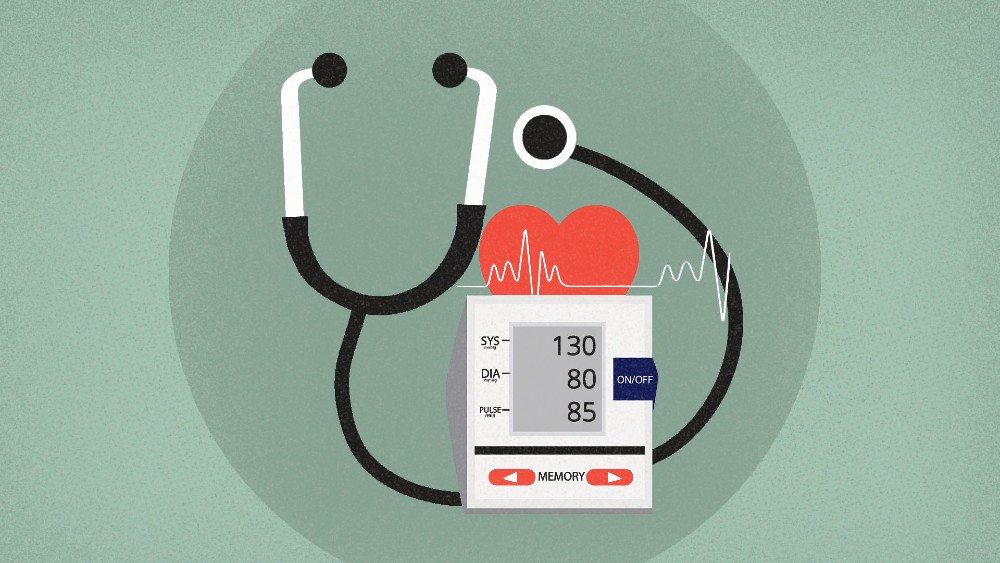
Nội dung bài viết / Table of Contents
This post is also available in: Tiếng Việt (Vietnamese)

Hypertension, also known as high blood pressure, occurs when the force of your blood against the artery walls is higher pressure than usual. You can have high blood pressure (hypertension) for years without any symptoms. Even without symptoms, in the long run, this can lead to health problems, including heart attack and stroke.
Blood pressure readings are given as two numbers. The top number is called the systolic blood pressure. The bottom number is called the diastolic blood pressure. For example, 120 over 80 (written as 120/80 mmHg).
One or both of these numbers can be too high. (Note: These numbers apply to people who are not taking medicines for blood pressure and are not ill.)
If you have heart or kidney problems, or you had a stroke, your doctor may want your blood pressure to be even lower than that of people who do not have these conditions.
Hypertension is extremely common. It can affect patients at any age. It commonly affects elderly people. It can be managed by reducing your risk factors. Please discuss with your doctor for further information.
Most people with hypertension have no signs or symptoms, although they are in danger. Few of them may have some common symptoms of hypertension such as headaches, shortness of breath or nosebleeds.
However, these signs and symptoms aren’t specific and don’t usually occur until high blood pressure has reached a severe or life-threatening stage.
There may be some symptoms not listed above. If you have any concerns about a symptom, please consult your doctor.
You should contact your doctor if you have any of the following:
If you have any signs or symptoms listed above or have any questions, please consult with your doctor. Everyone’s body acts differently. It is always best to discuss with your doctor what is best for your situation.
There are two types of high blood pressure.
There are many risk factors for hypertension, such as:
The information provided is not a substitute for any medical advice. ALWAYS consult with your doctor for more information.
There will be the special device to diagnose your condition called blood pressure cuff, which has an inflatable rubber platter, placing around your arm and measure your blood pressure. You might be required to take two to three blood pressure readings in both arms each at three or more separate appointments before diagnosing you with high blood pressure.
Blood pressure measurements fall into four general categories:
The common type of high blood pressure among people older than 60 is isolated systolic hypertension. The systolic pressure is high (greater than 140 mm Hg) meanwhile the diastolic pressure is normal (less than 90 mm Hg).
It depends on your health conditions, some medications will be prescribed: Thiazide diuretics, Beta-blockers, ACE inhibitors, ARBs, Calcium channel blockers, Renin inhibitors.
The following lifestyles and home remedies might help you cope with hypertension:
If you have any questions, please consult with your doctor to better understand the best solution for you.
Sources: